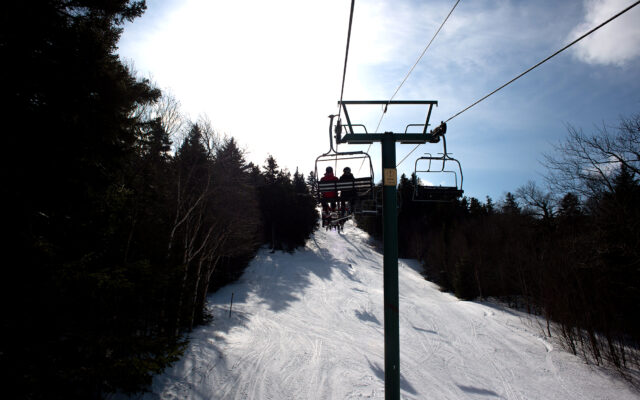
Piscataquis ski resort developers have to start from scratch if they want a marina
Developers of a proposed year-round ski resort in Piscataquis County are banned from developing a 150-200 slip marina unless they pursue a rezoning petition and new permit, according to an advisory ruling from the Land Use Planning Commission.
The new marina would be part of the Moosehead Lake Ski Resort that Big Lake Development LLC and other partners are proposing for a longtime ski area owned by James Confalone in Big Moose Township. The developers are purchasing the property from Confalone.
The Maine Land Use Planning Commission ruled over the summer that the proposed marina development exceeds the scope of a permit issued to The Big Squaw Mountain Corp. in 1987. The permit is also expired, meaning developers are prohibited from developing the area until they apply for and are granted a new permit. Developer Perry Williams of Big Lake Development LLC has not submitted any marina-related applications to the state since the ruling, and could not be reached for comment on their intentions.
“The specific activities proposed which would require a permit from the Commission include: reconstruction of the road and concrete boat ramp, clearing associated with trails and picnic areas, construction of a new parking area, and expansion of the waterfront facilities to include 150-200 seasonal boat slips and deep water moorings,” the ruling said.
The partners’ proposal was to reconstruct and expand elements of the existing waterfront development, which was allowed under a permit issued by special exception to Big Squaw Mountain Corporation in August 1987. Since September 2019, planning commission staff have participated in at least six meetings, where they explored the idea of developing the area, according to the ruling.
The Land Use Planning Commission has not heard from developers on the status of the marina, part of phase two of the ski resort development, said Stacie Beyer, acting executive director for the agency. If developers decide to move forward with the project, their next step would be to file a rezoning petition, for which there is no deadline, she said.
If the petition is approved, developers would then apply for a permit, likely through the Maine Department of Environmental Protection.
“It depends on the size of the project and how the DEP considers the ski resort and the marina,” she said. “My understanding is that they’re going to look at that as one project.”
Most recently, the planning commission requested that agencies across the state — including the Maine Department of Inland Fisheries and Wildlife, the Bureau of Parks and Lands, Piscataquis County commissioners and others — weigh in on the pending application, which has changed to better protect wildlife habitats and the environment. The agencies have until Jan. 3, 2022, to respond.
The developers — Big Lake Development LLC, nonprofit Provident Resources Group of Baton Rouge, Louisiana, and Treadwell Franklin Infrastructure Capital of Yarmouth — had asked the planning commision to review their modern proposal compared with what was approved for the 1987 permits to see if new permitting could be built around the old ones that had expired.
The commission said that because of the differences between the new and original plans, the current proposed marina would have to start its permitting process from scratch. Some of the differences had to do with the number of boat slips from 12 to 150-200, and the use of removable docks and moorings.
The commission offered guidance on what constitutes a legal structure or use and what requires a permit. An example of that is the developers’ proposed a parking area in the center of the loop road, which would require new construction and permitting. The commission said the planned four to five spaces may not be adequate for the proposed 150-200 boat slips and the level of daily traffic for the existing boat launch.
“The rezoning stage would only address what the allowed uses on the property would be,” Beyer said. “Any new permit for development would have to propose parking that meets the needs of the project. There needs to be sufficient parking. How that is addressed is up to the developer.”
Other proposed elements, such as clearings for walking trails and picnic areas, would potentially be allowed, the ruling said.